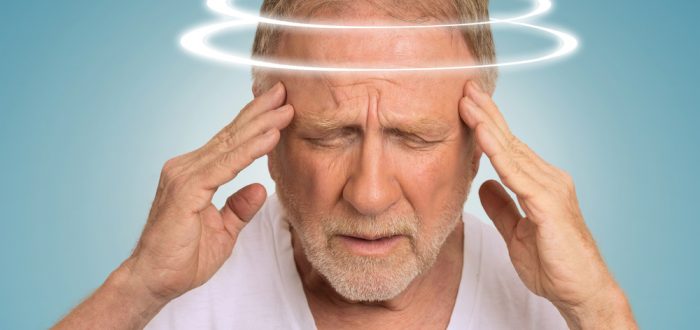The vestibular system is a part of our sensory system. It is responsible for providing our brains with feedback about head position, motion and spatial orientation. Additionally, it plays a role in the motor functions that allow us to maintain our balance, keep our heads and body stabilized while we’re moving, and maintain our posture.
In short, our vestibular system is responsible for providing a sense of balance to our body.
There are a number of components that make up our vestibular system, however the primary components are found in our ears. Specifically, the part of our inner ear known as the vestibular labyrinth.
Mal De Debarquement Syndrome is a rare disorder related to the vestibular system. It translates into “sickness of disembarkment”, and refers to an illusion of movement.
What is Mal de Debarquement Syndrome?
To better understand this condition, let’s consider this example. When you are out on a ship at sea, your brain has to adapt to a constant rocking motion as the ship moves on water. You are able to maintain your balance as the ship constantly rocks up and down on the waves. The normal functioning of your vestibular system enables this.
When the journey ends, and you set foot on land again, it can take a while for your vestibular system and your brain to recalibrate. It can take up to 2 days to get your normal sense of balance back. During this time, you may still feel as though you’re rocking with the movement of the waves.
If, however, you’re not able to shake the feeling that you are still in a boat on the water, you might be suffering from Mal De Debarquement syndrome. You will feel like the ground under your feet is uneven, and you will feel like you are swaying or rocking, even if you are not.
Symptoms of Mal de Debarquement Syndrome
Apart from the obvious symptoms of feeling like you’re bobbing, swaying, or rocking, other symptoms of Mal de Debarquement include:
- Confusion
- Depression
- Fatigue
- Loss in focus
- Anxiety
People with Mal de Debarquement Syndrome may note that their symptoms stop when traveling in a train or a car, but will return when they get out. There are certain triggers that can worsen this condition, such as:
- Being in a tight or closed-in space
- Rapid movement
- Stress
- Intense visual stimuli
- Trying to be still
Causes of Mal de Debarquement Syndrome
Mal de Debarquement Syndrome is very rare. The exact phenomena behind this condition is not entirely known. This syndrome is most commonly faced by people who have been on a ship, plane, or train.
In some cases, there have been patients that seemingly got this syndrome from sleeping on waterbeds. Elevators and using VR headsets for extended periods of time have also been linked to this syndrome. There is not much research into the syndrome as yet. Further research to identify a cause is needed.
Treatment for Mal de Debarquement Syndrome
Since this condition is incredibly rare and the research on it is also limited, there is no definitive treatment for Mal de Debarquement Syndrome. In most cases, it tends to go away on its own within a year of its onset. However, some forms of treatment do exist. It is important to mention here that the results of these treatments vary drastically from person to person.
- Brain Stimulation Therapy – This involves the use of electrical signals to modify your brain function and restore the sense of balance.
- Medication – While there is no drug developed to treat Mal De Debarquement Syndrome, certain medications used to treat anxiety, depression, and insomnia have shown promising results in certain cases.
- Vestibular Rehabilitation – This involves certain specialized exercises to help with restoring balance.
Mal De Debarquement Syndrome is a mystery ailment that continues to baffle doctors and researchers to this day. Its cause is still unknown, and the treatments are experimental at best. Still, it is a very rare condition and from what science can tell there is no way to prevent it from happening to anyone. If you recognize the symptoms above, we recommend that you speak with your primary healthcare practitioner.
Need Help? Contact Us Today!
Need further information or would like to speak to a hearing specialist? The hearing care professionals at Anderson Audiology are ready to help. Call us today at 702-997-2964. Alternatively, click here to request an appointment online.

